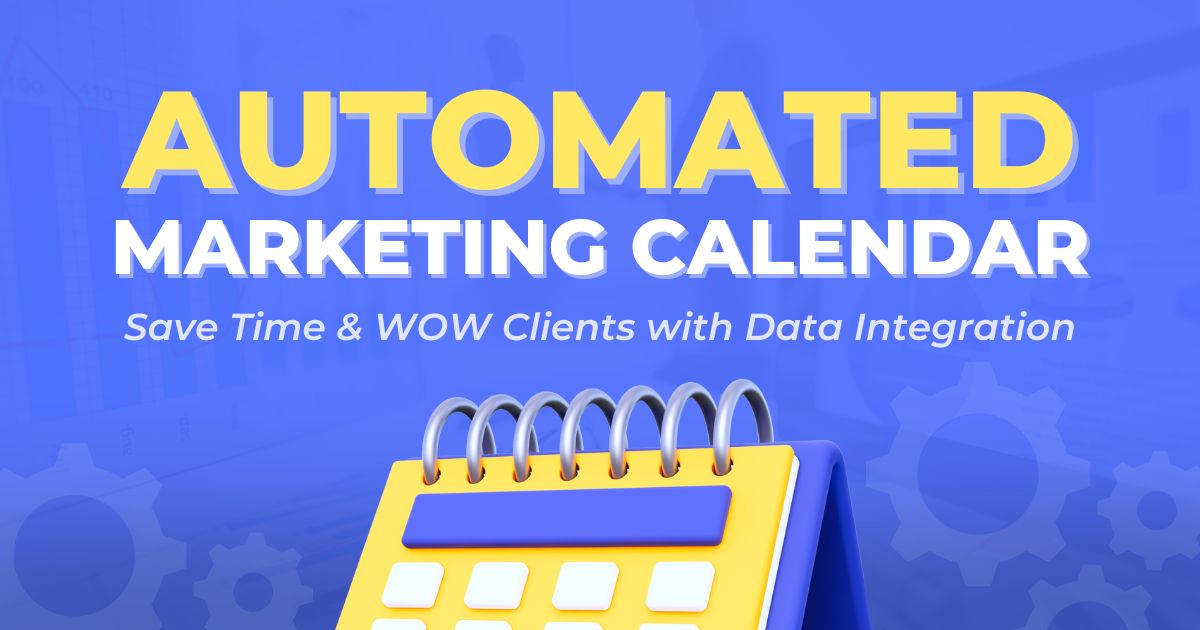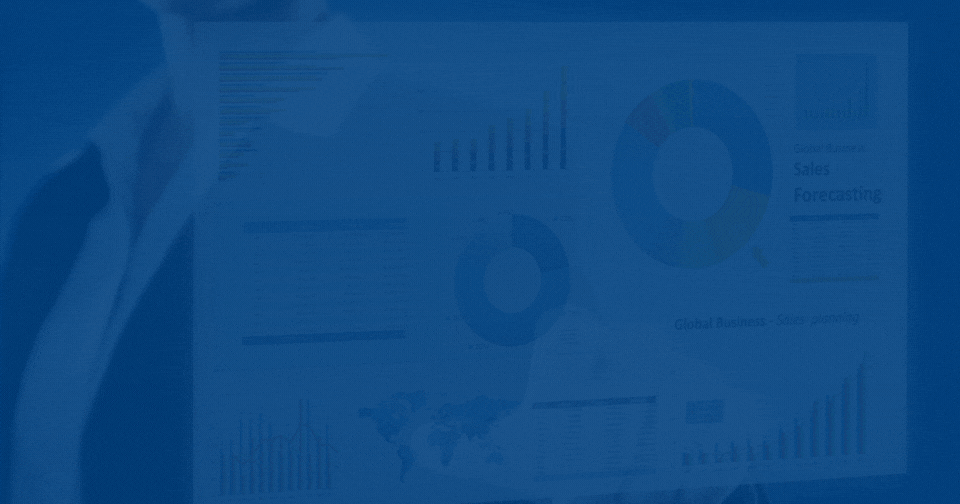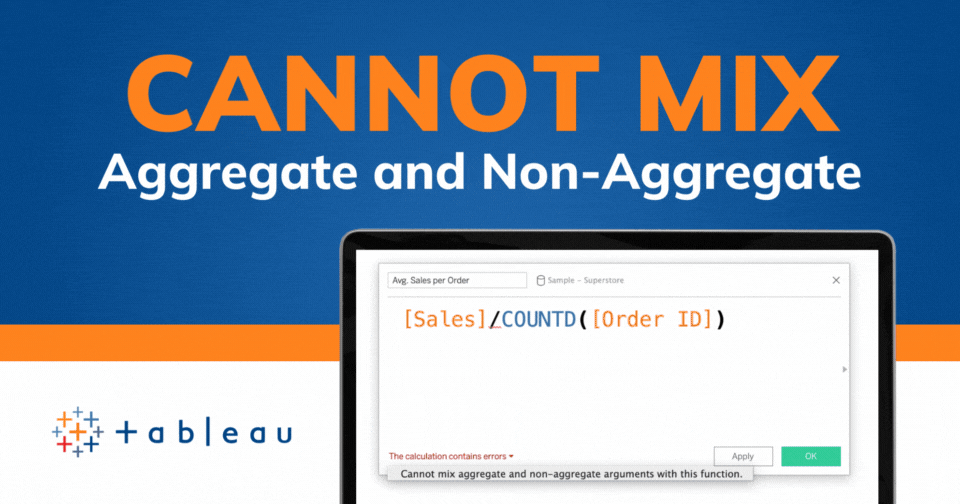Tableau Conference 2025 | Know Before You Go
If you’re a data enthusiast, analytics professional, or just someone curious about Tableau’s latest innovations, the Tableau Conference 2025 is your...
3 min read
 Luke Komiskey
May 14, 2023
Luke Komiskey
May 14, 2023

Within media and marketing organizations, keeping an accurate and up-to-date marketing calendar is crucial for marketing teams to stay organized and effectively manage their clients' campaigns. However, consolidating data from disparate marketing sources and maintaining manual spreadsheets can be time-consuming and error-prone. That's where data automation and integration come in, providing a seamless way to create an interactive marketing calendar that enhances communication, efficiency, and decision-making.
In this blog post, we'll explore the power of data automation, the process of creating a centralized marketing calendar with digital and traditional advertising sources, and the benefits of an interactive client-facing marketing calendar to save you time and delight your clients.
Data automation is the process of using technology to collect, process, and integrate data from various sources without manual intervention. By automating data collection and integration from digital advertising platforms like Google, Facebook, and LinkedIn ads alongside traditional ad buying platforms like FreeWheel Strata and Mediaocean, agencies can save time, reduce errors, and focus on more strategic tasks such as optimizing for return on advertising spend. Furthermore, automated data processes help create a more accurate and comprehensive view of marketing campaigns, leading to better-informed decisions.
When it comes to data automation, several tools and platforms facilitate the integration of data from disparate sources. Tableau, for example, is a powerful data visualization and analytics platform that helps agencies turn raw data into actionable insights. Snowflake is another popular cloud data warehousing technology capable of storing and providing analytical calculations on millions of impressions, creative, and ad-buying data to scale with your agency. By integrating these tools, agencies can streamline their data processes and create a centralized marketing calendar that covers all their media buys and campaign data.
A centralized marketing calendar provides a unified view of all media buys and campaign performance data, regardless of the source. This holistic approach allows agencies to track their campaigns across both digital and traditional advertising channels, such as TV, radio, print, and online platforms. By automating data integration, agencies can ensure that their marketing calendars are always up-to-date and accurate to create client confidence in your agency’s value.
To create a centralized marketing calendar, start by identifying the data sources you need to include, such as; advertising platforms, CRM systems, and financial data around marketing spend. Next, use data automation tools and platforms like Snowflake, and cloud ETL tools, such as Matillion and Fivetran, to collect and integrate data from these sources into a single, unified data warehouse. This may involve setting up APIs, data connectors, or custom data extraction processes to pull data from various platforms consistently and automatically.
Once the data is integrated, you can use data visualization tools like Tableau to create an interactive marketing calendar that displays key information, such as media buys, campaign schedules, performance metrics, and audience insights. With a centralized marketing calendar in place, agencies can quickly identify trends, optimize campaigns, and make data-driven decisions to improve their clients' marketing efforts.
An interactive client-facing marketing calendar offers several advantages for both media and marketing agencies and their clients. By centralizing and automating data from various sources, agencies can provide their clients with a comprehensive, real-time overview of their marketing efforts.
Interactive marketing calendars enhance communication between agencies and clients. By providing a visual representation of all ongoing and planned campaigns, clients can easily understand the distribution of their marketing budget and the impact of their media buys. This level of transparency fosters trust and strengthens the relationship between agencies and clients.
Interactive marketing calendars allow agencies and clients to identify trends and opportunities in their marketing campaigns quickly. By consolidating data from both digital and traditional advertising sources, users can spot patterns, monitor performance, and compare the effectiveness of various channels. This ability to analyze data in real-time empowers agencies and clients to make well-informed decisions and take advantage of emerging trends as a calendar year progresses.
With an interactive marketing calendar, agencies and clients can quickly detect underperforming campaigns or channels. By having access to real-time data, it's easier to identify areas that need improvement and to reallocate resources accordingly. This nimbleness enables agencies to optimize their clients' marketing efforts for better results and increased ROI.
An interactive marketing calendar significantly reduces the manual work involved in updating and maintaining spreadsheets. This time-saving benefit allows agencies to focus more on delivering value to their clients and less on time-consuming administrative tasks. Additionally, the centralized nature of an interactive calendar fosters collaboration between team members and clients, making it easier to share insights and work together on marketing initiatives.
In today's fast-paced marketing landscape, media and marketing agencies need a streamlined approach to managing their clients' marketing efforts. Leveraging data automation and integration to create an interactive client-facing marketing calendar is a powerful solution that brings efficiency, accuracy, and improved client satisfaction - while also saving your team's time on manual spreadsheet processes.
By consolidating disparate marketing data sources, agencies can provide their clients with a comprehensive view of their campaigns, including both digital and traditional advertising channels. This unified perspective enables agencies and clients to make data-driven decisions, optimize campaigns, and capitalize on emerging trends.
If you're ready to upgrade your marketing calendar, free up the countless hours of spreadsheet chaos, and take advantage of strategic conversations with your clients, our DataDrive team is here to help. We provide a managed analytics service that reduces manual spreadsheet work and combines both digital and traditional advertising sources into a 100% managed reporting platform with interactive executive reporting and scheduled client reports sent directly to inboxes.
DataDrive has helped over 150 organizations unlock the full potential of marketing and media data to support interactive marketing calendars with delighted clients. Reach out to discuss your unique data needs.
-2.gif)
If you’re a data enthusiast, analytics professional, or just someone curious about Tableau’s latest innovations, the Tableau Conference 2025 is your...

Tableau Plus is the new premium offering from Tableau, a leading data visualization and business intelligence platform. It builds upon the...

If you've spent any time working with Tableau, you've likely encountered the dreaded "Cannot Mix Aggregate and Non-Aggregate Arguments" error. It's a...